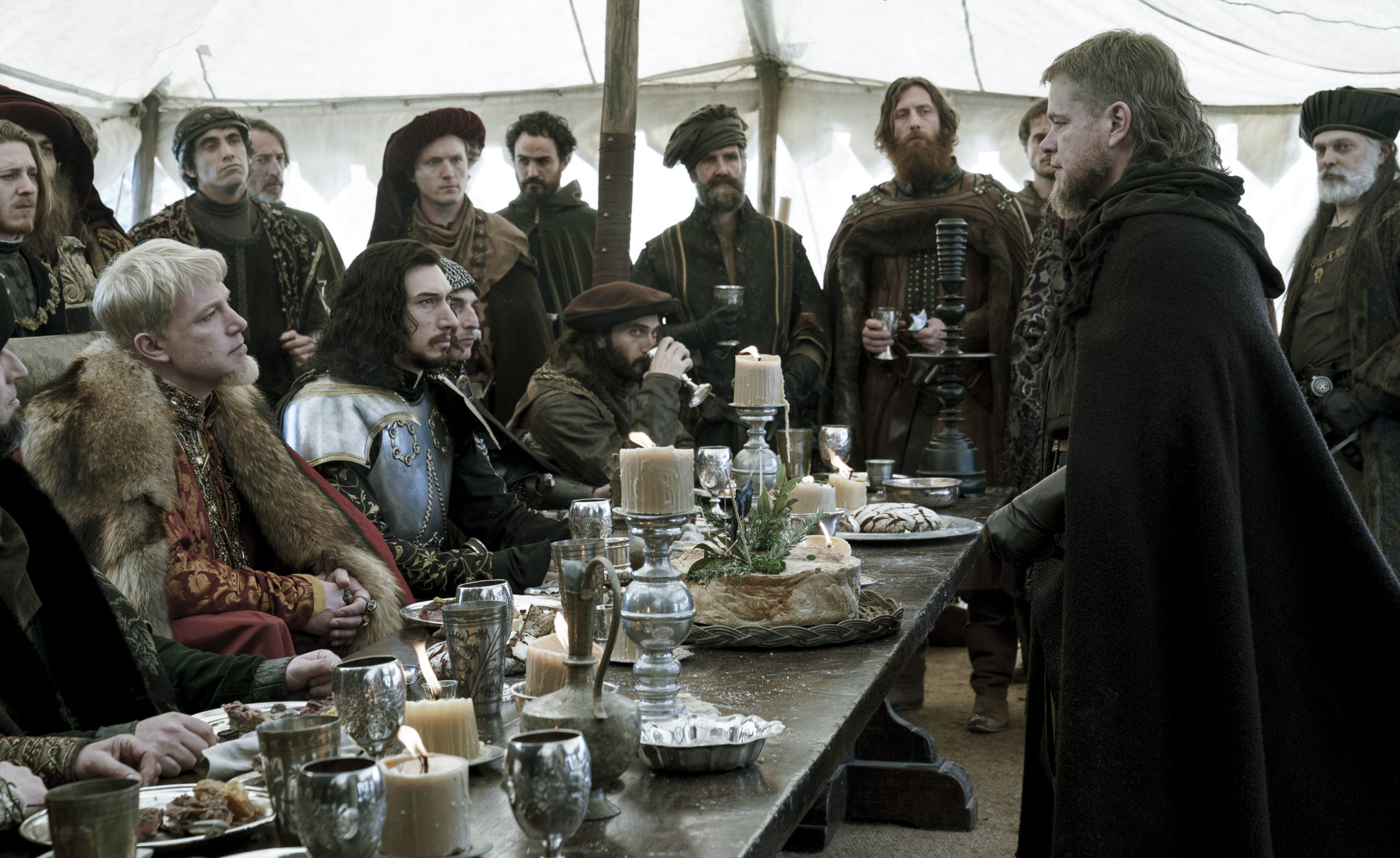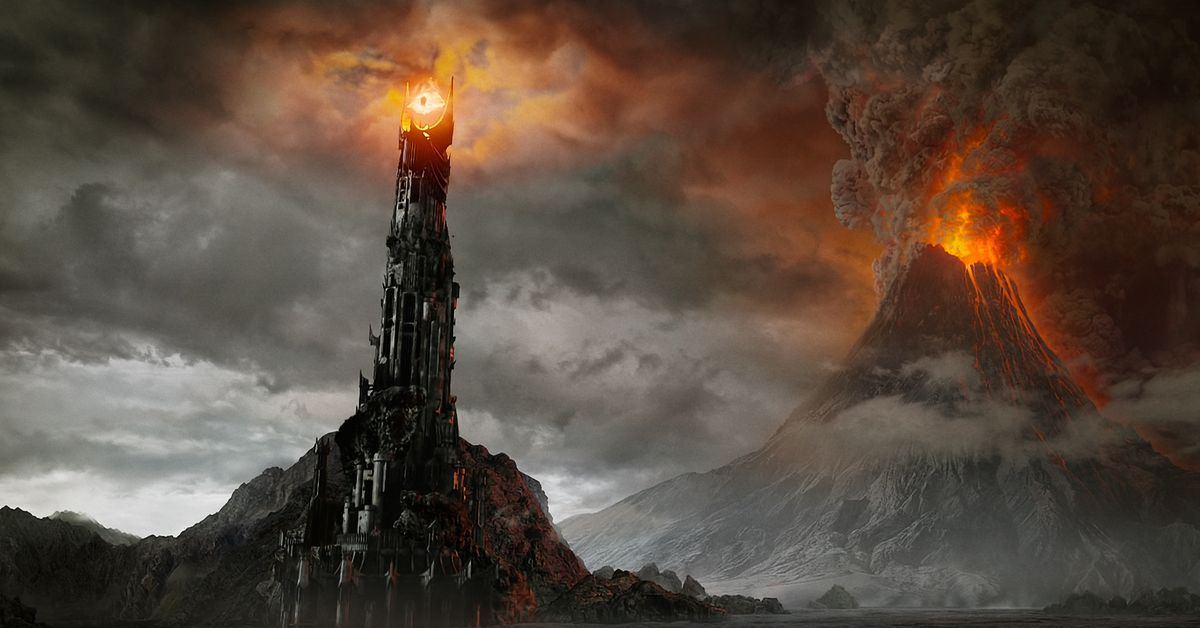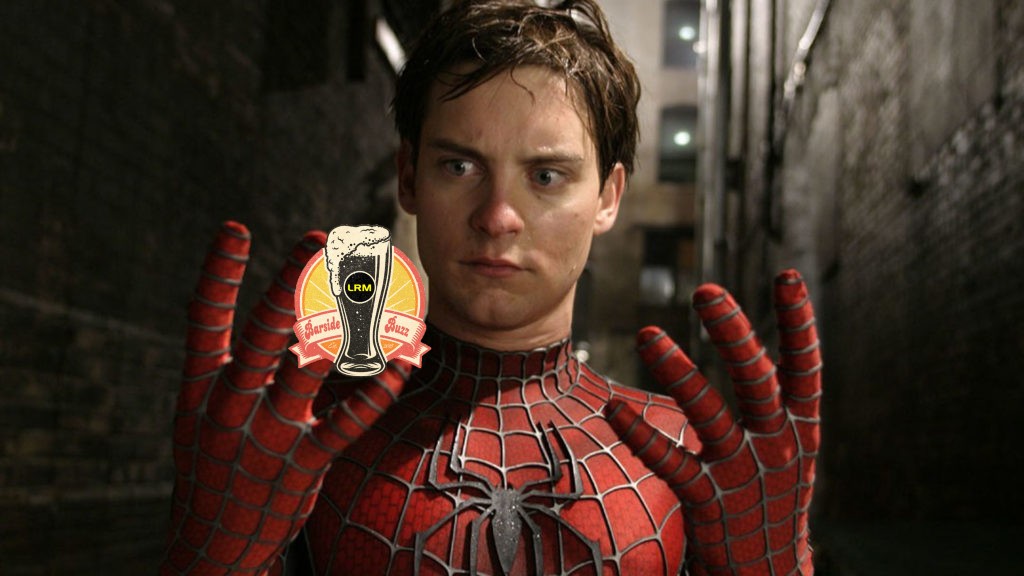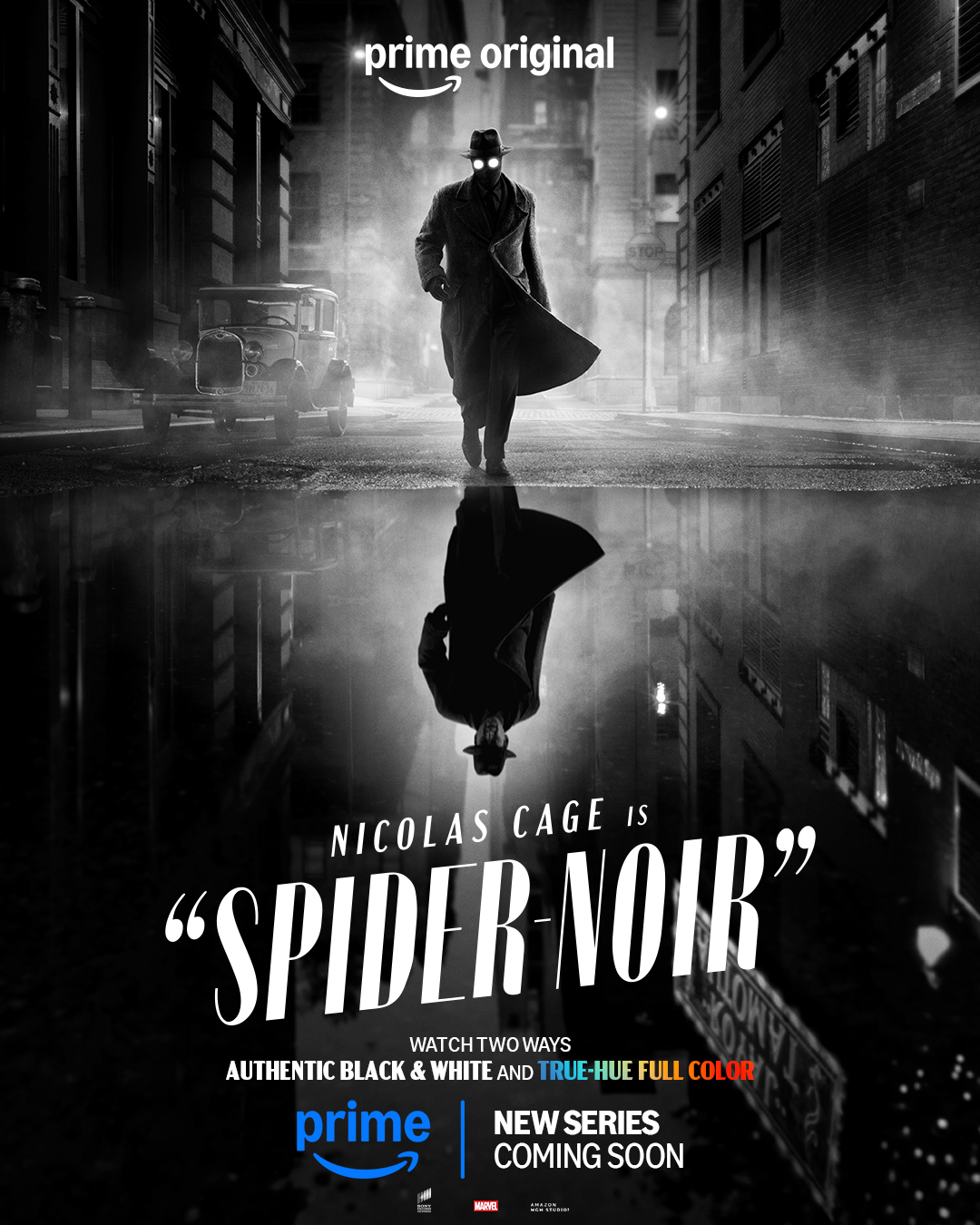The Last Duel is the intersecting story of Sir Jean de Carrouges (Matt Damon), his wife Marguerite (Jodie Comer), and Jacques Le Gris (Adam Driver). Based on historical events, the film recounts the relationship between these three individuals regarding a horrific life-changing event for Marguerite. In mid-14th century France Jean and Jacques are soldiers, and friends, serving King Charles VI. As both men strive for position and power, Jacques holds favor in court while Jean feels slighted and disrespected. Jean marries, and Jacques finds himself coveting his friend’s wife. Presuming that Marguerite feels the same way, Jacques physically advances on her. This leads Marguerite to publicly accusing Jacques of his heinous crime, causing turmoil.
What works in The Last Duel is the structure and the design. Director Ridley Scott unfurls his narrative through three distinct chapters: Jean’s, Jacques’, and finally Marguerite’s version of the story. Each time, the audience is presented with new insight into what actually transpired. The result is a powerful statement on how people justify their words and actions. Jean believes he was a supportive, but wronged husband. Jacques’ was simply acting on Marguerite’s signals, so he is innocent. What they have in common is both men demote and reduce Marguerite in their feud, discounting her as the victim. While all of the acting is top-notch, Comer excels in her role by playing subservient in Jacques’ and Jean’s stories, but revealing her true confident, brave, and savvy nature in her iteration (aptly and accurately subtitled “The Truth”).
RELATED: The Last Duel | The Cast On Creating The Subtle Differences Between Characters’ Perspectives
The set dressing and score for The Last Duel are impressive and add a certain weight to the proceedings. The recreation of medieval France oscillates between stark, intimate, and grand. Scott masterfully stages scenes of tension in small, cramped corners but also choreographs fight sequences nearing an epic scale. The confluence of visuals and sound make for a visceral experience. The latter half is thanks to composer Harry Gregson-Williams’ (The Martian, Prometheus) work to set the tone brilliantly as The Last Duel slides between moods.
Audiences uncomfortable with scenes depicting explicit sexual violence or gory combat will not enjoy The Last Duel. The scene(s) with Jacques and Marguerite are disturbing given their importance to the plot, and that intentionally makes them difficult to stomach. Additionally, The Last Duel features many sequences of graphic and gut-wrenching injuries as knights viciously battle one another to the death. All-in-all, this film holds nothing back and audiences should be severely warned of the material they are about to ingest.
The Last Duel is a tough movie to get through, but it is also a powerful work of art. It comes with important messages about perspective and the gross marginalization of women. While it will certainly be unsettling for most, nearly every facet is top notch including: directing, writing, acting, cinematography, production design, sound, and even costumes.
Recommended if you Enjoyed: Braveheart, Rashomon (1950), Kingdom of Heaven
 FOR FANBOYS, BY FANBOYS
Have you checked out LRM Online’s official podcasts and videos on The Genreverse Podcast Network? Available on YouTube and all your favorite podcast apps, This multimedia empire includes The Daily CoG, Breaking Geek Radio: The Podcast, GeekScholars Movie News, Anime-Versal Review Podcast, and our Star Wars dedicated podcast The Cantina. Check it out by listening on all your favorite podcast apps, or watching on YouTube!
Subscribe on: Apple Podcasts | Spotify | SoundCloud | Stitcher | Google Play
FOR FANBOYS, BY FANBOYS
Have you checked out LRM Online’s official podcasts and videos on The Genreverse Podcast Network? Available on YouTube and all your favorite podcast apps, This multimedia empire includes The Daily CoG, Breaking Geek Radio: The Podcast, GeekScholars Movie News, Anime-Versal Review Podcast, and our Star Wars dedicated podcast The Cantina. Check it out by listening on all your favorite podcast apps, or watching on YouTube!
Subscribe on: Apple Podcasts | Spotify | SoundCloud | Stitcher | Google Play




